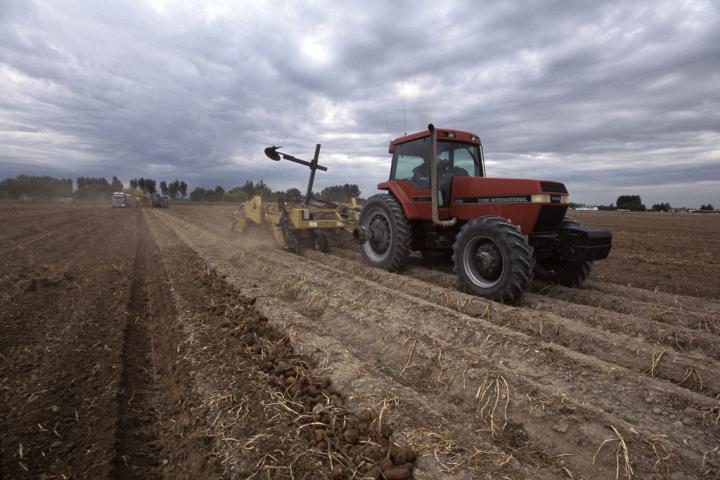Collaborative research shows more severe slowdowns in warmer regions like Africa and Latin America

Credit: Edwin Remsberg, University of Maryland
The University of Maryland (UMD) has collaborated with Cornell University and Stanford University to quantify the man-made effects of climate change on global agricultural productivity growth for the first time. In a new study published in Nature Climate Change, researchers developed a robust model of weather effects on productivity, looking at productivity in both the presence and absence of climate change. Results indicate a 21% reduction in global agricultural productivity since 1961, which according to researchers is equivalent to completely losing the last 7 years of productivity growth. This work suggests that global agriculture is becoming more and more vulnerable to ongoing climate change effects, with warmer regions like Africa, Latin America, and the Caribbean being hit the hardest.
“Our study suggests climate and weather-related factors have already had a large impact on agricultural productivity,” says Robert Chambers, professor in Agricultural and Resource Economics (AREC) at UMD and an esteemed agricultural productivity researcher. “We used the model in this paper to estimate what total factor productivity patterns would have looked like in the absence of climate change.”
Total factor productivity is a calculation that is used to measure the growth of an industry, in this case agriculture. However, agriculture is a unique industry because not all the inputs that determine productivity are in the farmer’s direct control, like the weather for example. Chambers and Ariel Ortiz-Bobea (lead author on this work from Cornell University and UMD AREC alum) have been pioneering new productivity calculations in agriculture to include weather data in a way that hasn’t historically been addressed, bringing new accuracy to these types of climate models.
“When a farmer makes an economic decision like what to plant in June, we won’t necessarily know the outcome of that decision until 6 months later,” explains Chambers. “So there is a distinct break between input and output, and random events like weather can severely affect that. Productivity is essentially a calculation of your inputs compared to your outputs, and in most industries, the only way to get growth is with new inputs. Agricultural productivity measurement hasn’t historically incorporated weather data, but we want to see the trends for these inputs that are out of the farmer’s control.”
In this case, weather data was an integral part of the model, looking at productivity in both the presence and absence of climate change. While Chambers’ previous work in Science Advances gives details about the specific regional effects of climate change on U.S. agricultural productivity, this paper had a more global focus.
“Our study allows us to compare U.S. effects relative to other regions of the world,” says Chambers. “The impacts for the U.S. are measurable and negative, but they appear to be much smaller than for other regions, in particular Africa.”
In fact, the study finds that while global agricultural productivity growth has slowed by about 21% since 1961, areas like Africa, Latin America, and the Caribbean that are in warmer climate regions already have experienced slows in growth of 26-34%. The United States seems to be less affected, with slows in growth of approximately 5-15%.
“Some people think about climate change as a distant problem, something that should concern primarily future generations. But this overlooks the fact that humans have already changed the climate,” says Ortiz-Bobea. “Overall, our study finds that anthropogenic [man-made] climate change is already having a disproportionate impact on poorer countries that depend primarily on agriculture. It appears that technological progress has not yet translated into more climate resilience.”
“It’s not what we can do, but it is where we are headed,” adds Chambers. “This gives us an idea of trends to help see what to do in the future with new changes in the climate that are beyond what we’ve previously seen. We are projected to have almost 10 billion people to feed by 2050, so making sure our productivity is not just stable but growing faster than ever before is a serious concern.”
###
This paper, entitled Anthropogenic climate change has slowed global agricultural productivity growth, is published in Nature Climate Change, DOI: 10.1038/s41558-021-01000-1.
Media Contact
Samantha Watters
[email protected]
Related Journal Article
http://dx.




